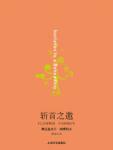Chapter 1 foreword
The original Russian title of this novel is Priglashenie na kazn'.I would have suggested that the English translation be Invitation to an Execution, although the repeated suffix does not read smoothly; but on the other hand, Priglashenie na otsechenie golovi (Invitation to a Decapitation) is what I really want to express in my mother tongue, because there are also reading Come to the problem of stuttering, so I didn't use it.
The Russian original was written by me in Berlin a quarter of a century ago, some fifteen years after fleeing the Bolshevik regime and on the eve of the Nazi regime's heyday.Whether the fact that I saw the same stupid and barbaric farce under both systems has any effect on this book has hardly ever occurred to me, nor need the good reader to delve into it.
Priglashenie na kazn' was first serialized in Paris, a Russian immigrant magazine, "Contemporary Chronicle", and later, in 1938, was published by Maison des Books in the same city.Immigration critics were confused, but loved it.They thought they found a "Kafkaesque" tone in the book, but I didn't know German at all, I knew nothing of modern German literature, and I had never read any French or English translations of Kafka's works.No doubt there are some stylistic links between this book and my earlier work (or the later Signs of the Concubine), but not in any way with or. In my conception of literary criticism, There is no psychic equivalent. But if I had to choose a psychic counterpart, I would certainly choose the great artist rather than Joe H. Orwell or any of the other popular writers of graphic thought and writers of political fiction. Incidentally, I've never been able to understand why, with every book I publish, the critics are always scrambling to find some more or less well-known author with whom to compare them enthusiastically. For thirty years, they've thrown my name at ( To name but a few of these harmless projectiles) Gogol, Dostoevsky, Joyce, Voltaire, Sade, Stendhal, Balzac, Byron, Birbohm, Proust, Kleist, Makar Mariinsky, Mary McCarthy, Meredith (!), Cervantes, Charlie Chaplin, Murasaki Shikibu, Pushkin, Ruskin, even Cy Bastian Knight. But there is one author whose name is never mentioned--who, I must gratefully admit, was the only author who influenced me while I was working on this novel, and that A melancholy, pompous, intelligent, witty, mysterious, very lovely Pierre de la Lande, but I made up that name.
If one day I compile a dictionary of definitions and need to use some words as entries, one of the most cherished entries will be "Abridged, expanded, or actively modified or passively modified in the process of translation, In order to achieve the purpose of improving the quality of the work afterwards."Generally speaking, the desire to do so grows in direct proportion to the length of time between the original work and the translation.But when my son asked me to check the book in translation, and when I had to re-read the Russian original years later, I was relieved to find that I didn't have to wrestle with the demon of creative revision.A certain phantasm embodied in the Russian phraseology I used in 1935 has been accurately expressed, and the translation into English needs only some general corrections, because English is not like Russian in order to achieve clarity. Sophisticated, using so many staggeringly fixed ingredients.Facts have proved that my son is a very suitable translator. We agreed on a principle that being faithful to the original work is the first priority, no matter how weird the result may be.Long live the pedants, to hell with the fools who think that if you just translate the "spirit" (the wording is allowed to wander freely, childish and vulgar, like in the suburbs of Moscow, Shakespeare is forced to play the king's ghost again) and everything will be fine Bar.
My favorite author (1768-1849) once said of a novel now completely forgotten: "He wrote for all, he possessed all means of expression. He made children laugh, women trembled, he Makes the men of the world dizzy as if they were saved, and makes those who never dream dream." Not this kind of novel.It is a violin that entertains itself.Worldly people will think it is playing tricks.Old folks would hastily turn away in favor of regional legends and biographies of public figures.Women who love club activities will not find it exciting.Obscenities at heart will see little Lolita in little Emmie.Disciples of the Viennese witch doctor, wallowing in the monstrous world of communal sin and progressive education, would chuckle at it.But (as the author of "A Lecture on Shadows" said about another kind of light), I know some readers will jump up and rage.

